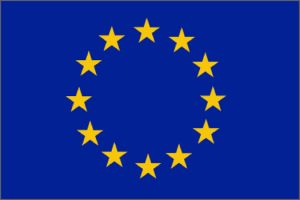 The European Union has announced plans to lend Ukraine €35 billion (approximately $39 billion), with the financing backed by revenues from Russian assets frozen within the bloc.
The European Union has announced plans to lend Ukraine €35 billion (approximately $39 billion), with the financing backed by revenues from Russian assets frozen within the bloc.
European Commission President Ursula von der Leyen made the announcement on Friday during a visit to Kyiv alongside Ukrainian President Volodymyr Zelensky.
“We are now confident that we can deliver this loan to Ukraine very quickly, a loan that is backed by the windfall profits from immobilized Russian assets,” von der Leyen stated. She emphasized that this financial support will provide Ukraine with significant fiscal flexibility, allowing the government to decide how best to utilize the funds.
As Ukraine grapples with the consequences of extensive bombardments by Russian forces, the country is in urgent need of financial support to stabilize its economy and maintain its electricity grid through the winter months.
This EU proposal is part of a broader agreement reached by G7 nations in June, which aims to use proceeds from frozen Russian assets to provide Ukraine with a total of $50 billion in loans. Von der Leyen expressed confidence that other G7 countries, including the United States, would contribute their share to this initiative.
EU officials noted that the amount of the EU loan could be adjusted if other G7 members decide to increase their contributions. Since the onset of the Russian invasion in 2022, the EU has frozen approximately $235 billion of Russian central bank funds, representing the majority of immobilized Russian assets worldwide. Most of these funds—around 90 percent—are held by Euroclear, an international deposit organization based in Belgium.
The G7 plan aims to leverage these assets to enhance financial support for Ukraine, replacing an existing EU scheme that provided $1.7 billion to Kyiv in July. Implementation of the G7 loan had faced delays as the United States sought assurances from the EU regarding the status of the frozen assets.
Currently, EU member states must renew the asset freeze every six months. However, officials indicated that Brussels is looking to extend this period to 36 months. Despite the uncertainty, the EU has decided to proceed with its portion of the G7 loan, believing the assets provide sufficient guarantees for the initiative.

